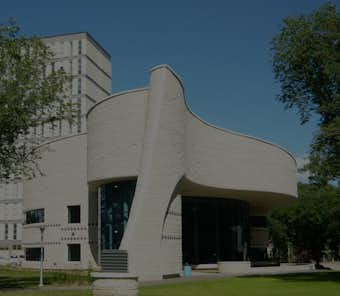
Study bioinformatics abroad
Find programs that match your eligibility and aspirations then apply with reduced application fees, a free assessment and access to a dedicated advisor.
Find your perfect bioinformatics programs abroad
Find bioinformatics programs you love that match your needs & aspirations, where you stand a high chance of acceptance.
-

PhD programs in
bioinformaticsNo programs listed
Bioinformatics degrees abroad
Bioinformatics is a fascinating and relatively new area of scientific study that blends biology with computing, statistics, and software programming. Bioinformaticians use information technology to process, analyze, and interpret biological data.
As the world becomes more technologically-driven and data-dependent, there’s never been a better time to study bioinformatics. You’ll learn how to condense huge biological datasets into meaningful information that can be used by researchers. Your work will be vital in the discovery of new biological characteristics, processes, and functions.
Studying abroad is a priceless opportunity to see how bioinformatics is transforming biological research and informing patient care across the world. You’ll contribute to exciting projects and will have the chance to work alongside international experts.

Why use Studee?
-
Find your ideal program
Filter 10,000s of programs down to a shortlist perfect for you, where you have a strong chance of getting admitted
-
Apply online via Studee
Complete our application form and enjoy reduced application fees and access to unique Studee scholarships for many universities
-
We assess within 48hrs
We complete an 85-point assessment within 2 business days, help you with improvements then submit to your university
-
University offer in 2-4 weeks
We chase the university for your admission decision and keep you updated. We all celebrate your admission!
All our services are 100% free as we're funded by universities. You pay deposits and tuition fees directly to the university.

Bioinformatics program structure
You can study a BSc in bioinformatics over a minimum of three years. However, students who take an industry sandwich year will add an extra 12 months onto their program.
Those choosing to pursue an undergraduate education in the US will also study for four years. In line with the liberal arts model of education, you’ll take two years of general education classes before majoring in bioinformatics.
Most qualified bioinformaticians are expected to have a master’s degree, so one or two-year MSc programs are widely available. If you’re hoping to embark on a career in research, you might consider enrolling in a PhD program. This will add at least a further three years to your studies.
A mixture of lectures, seminars, tutorials, computer laboratories, and hands-on workshops will provide you with a sound theoretical and practical understanding of the field.
Although each university offers a different selection of elective modules, most make it mandatory for students to study core topics like these:
- Introduction to bioinformatics
- Essentials of biology
- Statistics for bioinformatics
- Computational approaches to biology
- Genomics and gene sequencing
- Coding for scientists
- Programming skills
- Experimental design and analytics
Best countries to study bioinformatics
Bioinformatics study abroad programs
Bioinformatics undergraduate programs
Bachelor's in bioinformatics
-
Applied Computing: Bioinformatics - BSc/BSc (Hons) University of Saskatchewan, Canada
- Program type
- Bachelor's
- Duration
- 4 years
- Annual tuition fee
-
31,983 CAD
Fees are displayed in the university's local currency
- Start date
- July, September, January, May
-

Bioinformatics - BSc Carleton University, Canada
- Program type
- Bachelor's
- Duration
- 4 years
- Annual tuition fee
-
31,808 CAD
Fees are displayed in the university's local currency
- Start date
- September
-

Bioinformatics - BSc California State University, San Bernardino, USA
- Program type
- Bachelor's
- Duration
- 4 years
- Annual tuition fee
-
17,041 USD
Fees are displayed in the university's local currency
- Start date
- August, January
-

Bioinformatics - BHSc University of Calgary, Canada
- Program type
- Bachelor's
- Duration
- 4 years
- Annual tuition fee
-
20,172 CAD
Fees are displayed in the university's local currency
- Start date
- September
-

Bioinformatics - BSc (Hons) Western University, Canada
- Program type
- Bachelor's
- Duration
- 4 years
- Annual tuition fee
-
41,633 CAD
Fees are displayed in the university's local currency
- Start date
- September
Diploma in bioinformatics
-

Bioinformatics - UGDip Langara College, Canada
- Program type
- Undergraduate diploma
- Duration
- 4 years
- Annual tuition fee
-
20,572 CAD
Fees are displayed in the university's local currency
- Start date
- September, January, May
Bioinformatics graduate programs
Master's in bioinformatics
-

Bioinformatics (Advanced Practice) - MSc Teesside University, UK
- Program type
- Master's
- Duration
- 20 months
- Annual tuition fee
-
9,000 GBP
Fees are displayed in the university's local currency
- Start date
- September, January
-
Bioinformatics - MSc Rowan University, USA
- Program type
- Master's
- Duration
- 2 years
- Annual tuition fee
-
16,400 USD
Fees are displayed in the university's local currency
- Start date
- September
-

Bioinformatics - MSc University of Skövde, Sweden
- Program type
- Master's
- Duration
- 1 year
- Annual tuition fee
-
135,000 SEK
Fees are displayed in the university's local currency
- Start date
- August, September
-
Data Engineering: Bioinformatics - MSc Constructor University, Germany
- Program type
- Master's
- Duration
- 2 years
- Annual tuition fee
-
20,000 EUR
Fees are displayed in the university's local currency
- Start date
- September
-
Life Science Informatics: Bioinformatics and Systems Medicine - MSc University of Helsinki, Finland
- Program type
- Master's
- Duration
- 2 years
- Annual tuition fee
-
15,000 EUR
Fees are displayed in the university's local currency
- Start date
- September
Future bioinformatics careers
As biological research projects and discoveries continue to gather momentum, your data-handling skills and technical expertise will be in high demand.
With a bioinformatics degree you’ll have a range of career paths to choose from. Graduates typically work across industry, research, education, and healthcare in roles including:
- Bioinformatician
- Bioinformatics software developer
- Bioinformatics engineer
- Research scientist
- Bioinformatics manager
- Computational biologist
- Secondary school teacher
If working out what to do after graduation feels overwhelming, most universities have a careers office you can speak to. The professional staff can help you with career direction, work experience, and interview preparation.















